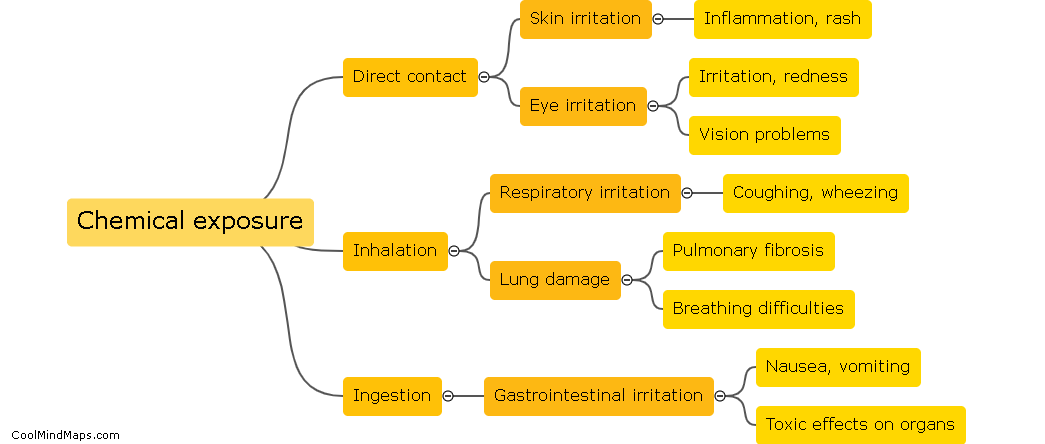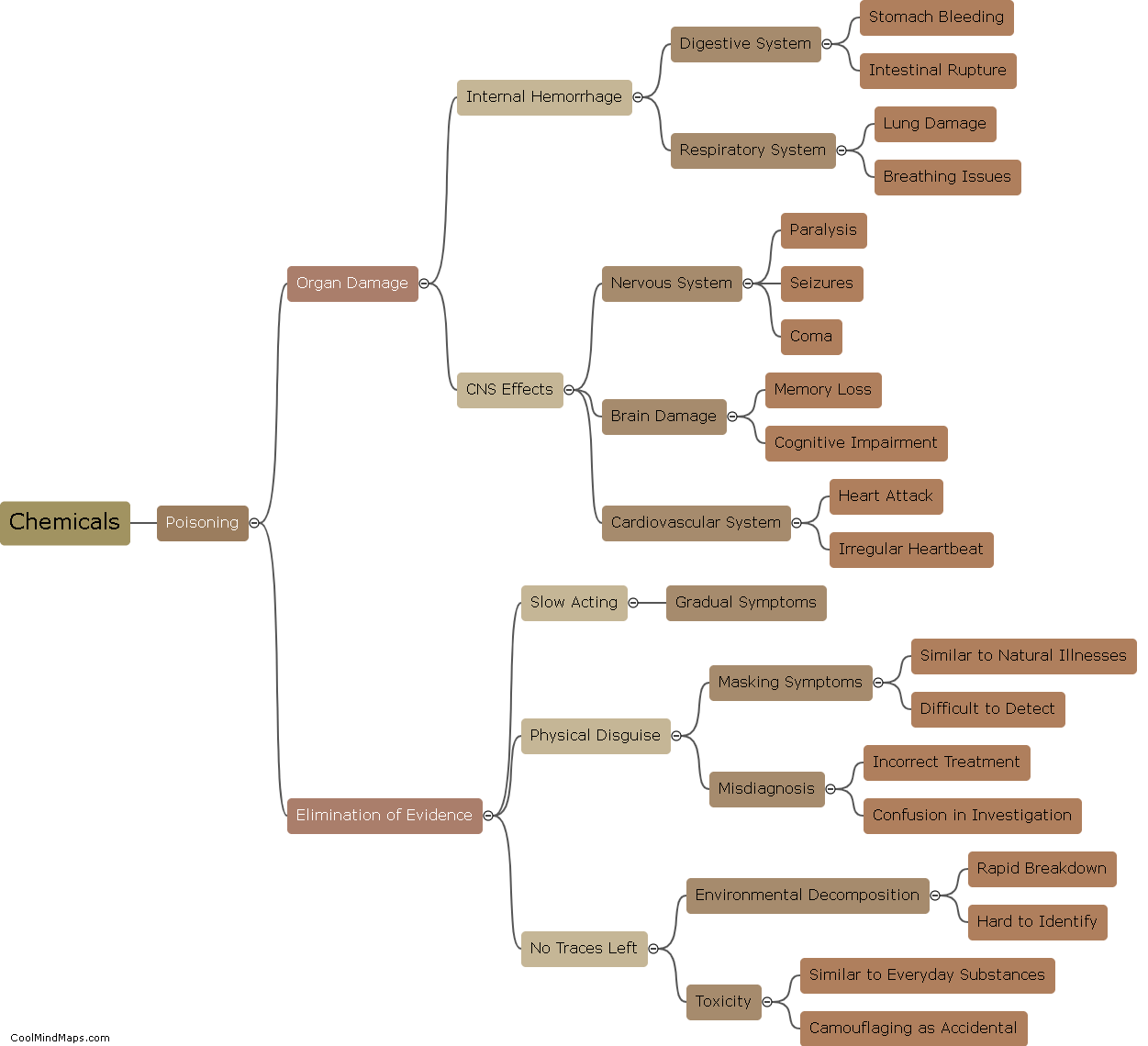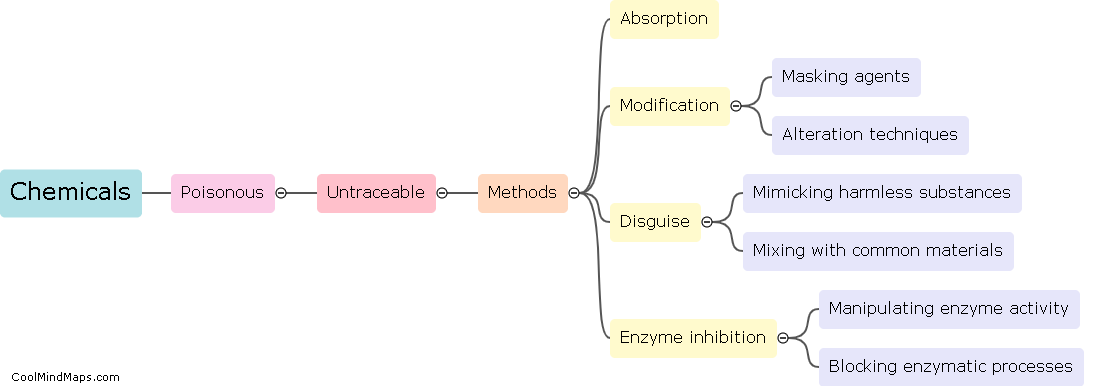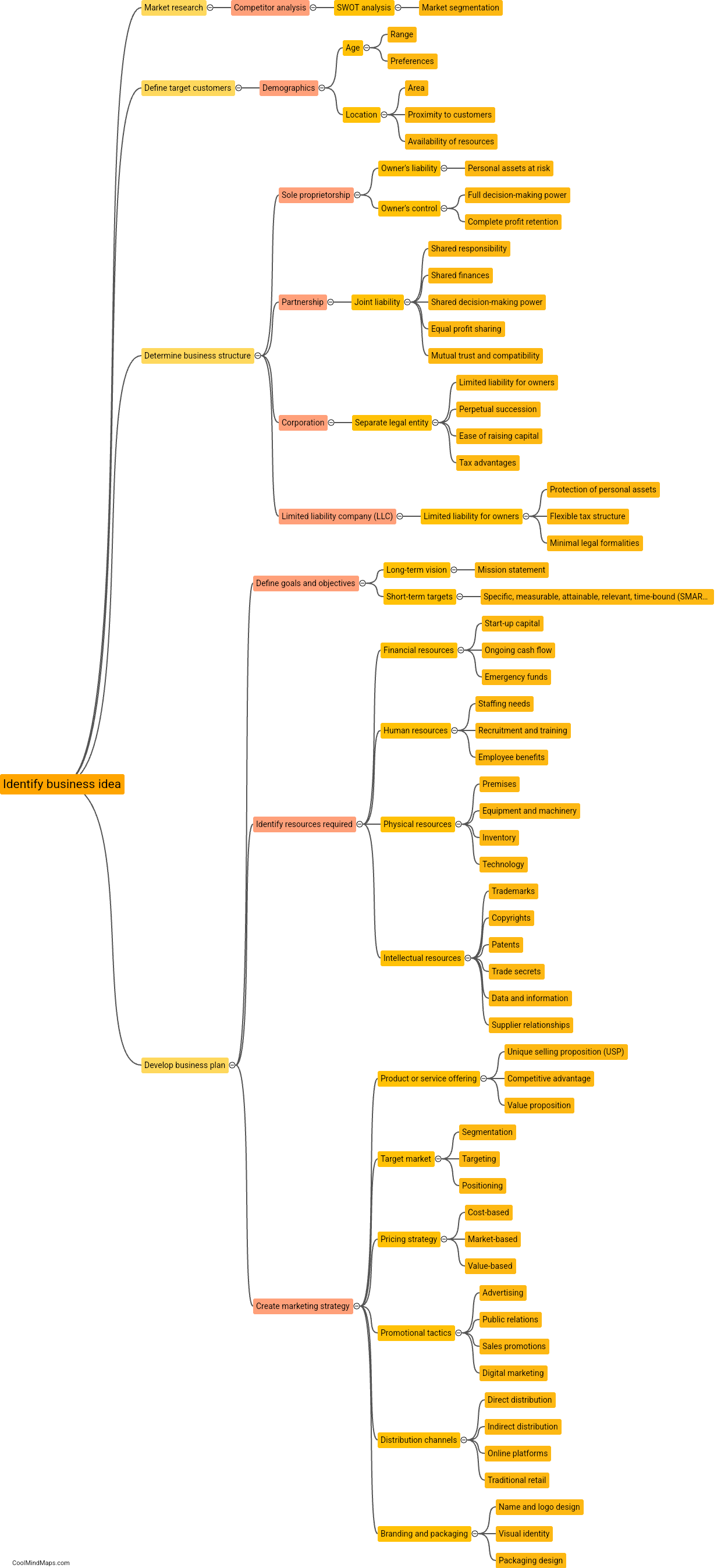What chemicals cause non-traceable death in humans?
There are several chemicals that can cause non-traceable death in humans, making it difficult for investigators to identify the cause. One example is the deadly nerve agent known as VX, which affects the nervous system and leads to paralysis, respiratory failure, and ultimately death. Another dangerous substance is cyanide, a potent poison that inhibits the body's ability to use oxygen, resulting in asphyxia. It can be found in various forms such as potassium cyanide or hydrogen cyanide gas, and symptoms can vary from rapid breathing and headache to loss of consciousness and cardiac arrest. Furthermore, drugs from the opioid family, such as fentanyl, can lead to respiratory depression, overdose, and potentially fatal outcomes. These substances present significant challenges in forensics, as their presence may not be easily detectable during an autopsy unless specifically tested for. Hence, the identification and confirmation of non-traceable deaths caused by such chemicals often require specialized expertise and investigation techniques.
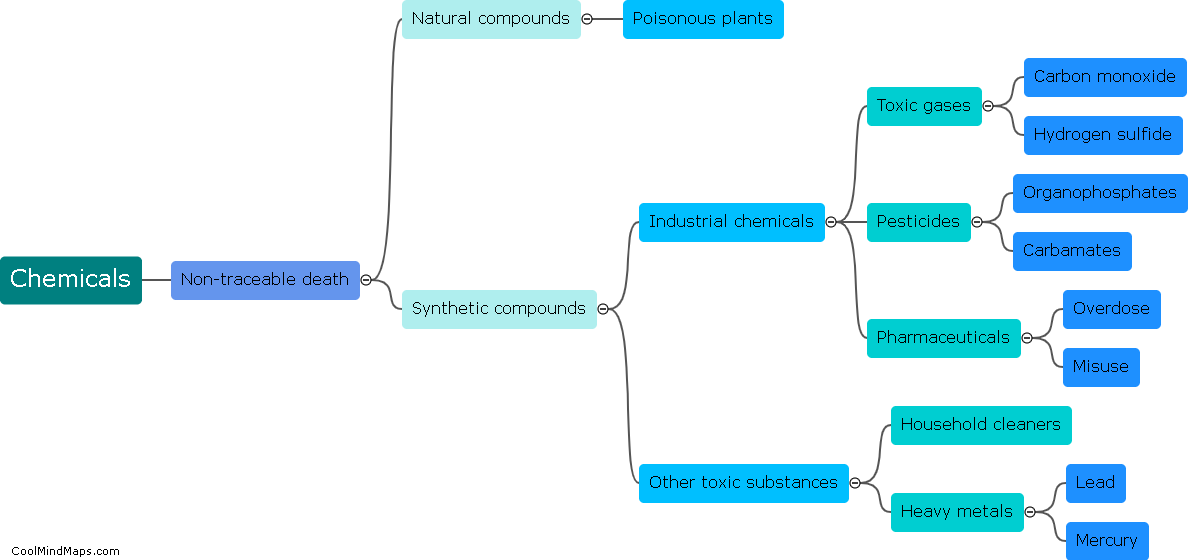
This mind map was published on 23 January 2024 and has been viewed 46 times.





